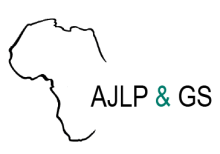/ library resources
Showing items 1 through 9 of 216.The Agroecology Initiative (AEI) aims to contribute to achieving Agroecological Transitions (AET) through developing and scaling a range of innovations (technical, social, economic, and political) in 8 countries across three continents.
Local agrobiodiversity in remote areas such as the Moroccan High Atlas is poorly studied, despite being of great importance for the sustainability and resilience of mountainous populations.
Despite their potential to diversify diets and improve nutrition, little is known about the consumption and utilization of indigenous fruits (IFs) in the Philippines.
Efficient conservation and subsequent utilization of genetic resources are primarily dependent on the strength in the assessment of variation among geno-types.
The effectiveness of maize seed treatments for management of fall armyworm (FAW) (Spodoptera frugiperda) was evaluated under natural infestation conditions in Zambia in 2019, 2020 and 2022.
Agronomic gain key performance indicators (KPIs) are designed to monitor, evaluate and measure the impact of changes in agronomic practices in the CGIAR Excellence in Agronomy initiative (EiA).
To understand the aquatic feed sector in Zambia, Kenya and Nigeria and to inform subsequent impact
assessments of the Norad-Fasa project, the monitoring, evaluation, learning and impact assessment (MELIA)
BackgroundStudies which have been conducted so far have focused on the processes of land use/cover changes in different areas at regional and global scale.
Pagination
Land Library Search
Through our robust search engine, you can search for any item of the over 73,000 highly curated resources in the Land Library.
If you would like to find an overview of what is possible, feel free to peruse the Search Guide.


